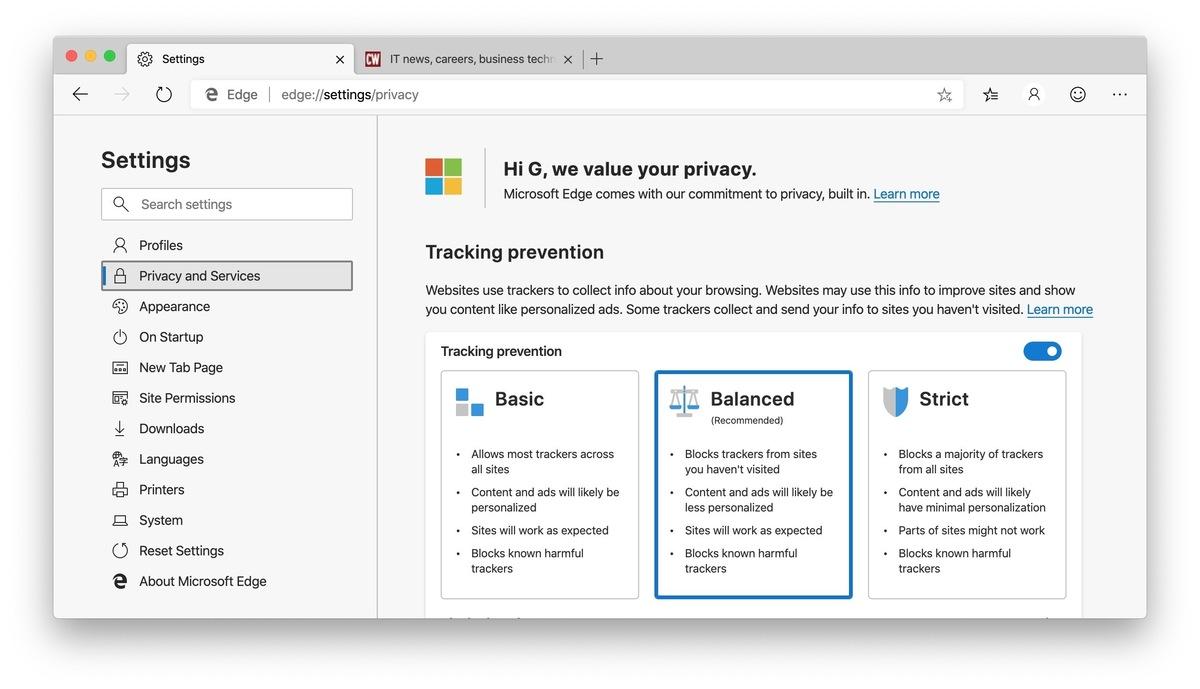

In regard to this, during the initial announcement of the move in December 2018, the shift to an open source philosophy was mentioned as one of the main reasons Microsoft has decided to make this move. The decision to adopt the open-source Chromium engine may represent a bigger shift within Microsoft, which has so far mostly used proprietary solutions like their EdgeHTML engine. On the other hand, websites like that previously did not support Microsoft Edge and reported various display problems that prevented users from fully using the website should now work as intended. The difference in UI is relatively minor and focuses around the tabs area it's a little slimmer and includes several additional buttons that help manage the tabs, while the content itself seems identical. The above screenshot is a side-by-side comparison of the website rendering via the current version of Edge version (left) and the upcoming release of Edge 79 with the Chromium engine (using the beta release branch). As a result, developers will no longer need to perform additional tests nor add specific code to fully support the Edge browser, which in turn should increase the adoption rate of the browser. The move aims to increase compatibility between Microsoft Edge and Chromium-based browsers that dominate the market. “Above all,” Taylor writes.With the release of Edge 79, Microsoft will transition from its proprietary EdgeHTML engine to Chromium, the popular open-source engine that powers Chrome. Even after installing an update, Chrome and Chromium-based browsers must be restarted by users before they are protected.


Chrome cannot protect itself automatically. Taylor notes it has already dropped from 35 days in Chrome 76 to an average of 18 days today with further plans to reduce this in the works.īut much of Google’s good work in the face of these growing attacks still relies on the user, and here Taylor issues a warning. There’s also the question of complexity with Taylor noting that “there’s simply the fact that software has bugs Browsers increasingly mirror the complexity of operating systems - providing access to your peripherals, filesystem, 3D rendering, GPUs - and more complexity means more bugs.”įor its part, Chrome is stepping up its release cycles to try and cut the “patch gap” between zero-day hacks and their fixes becoming available.


 0 kommentar(er)
0 kommentar(er)
